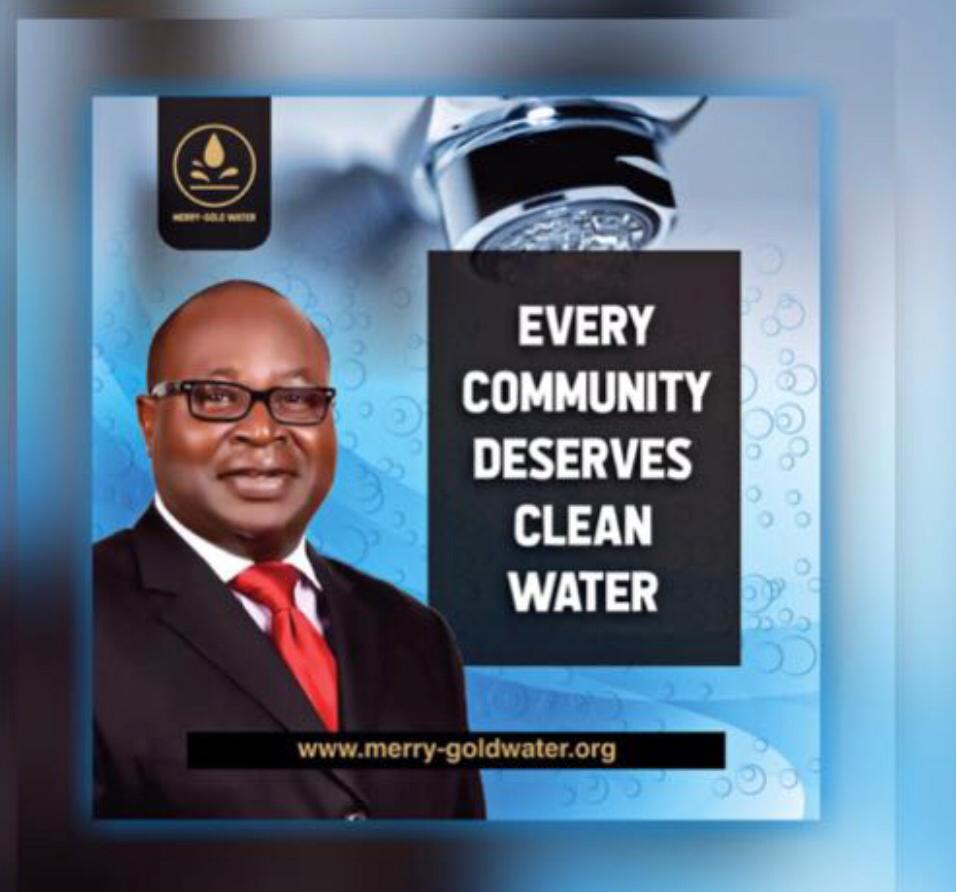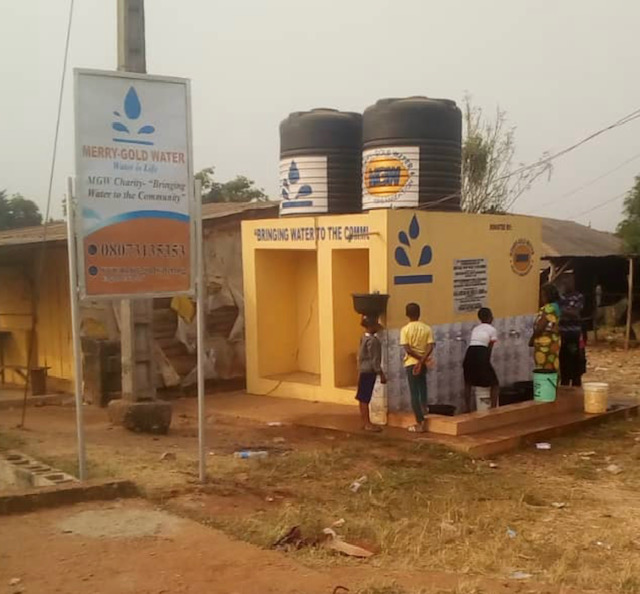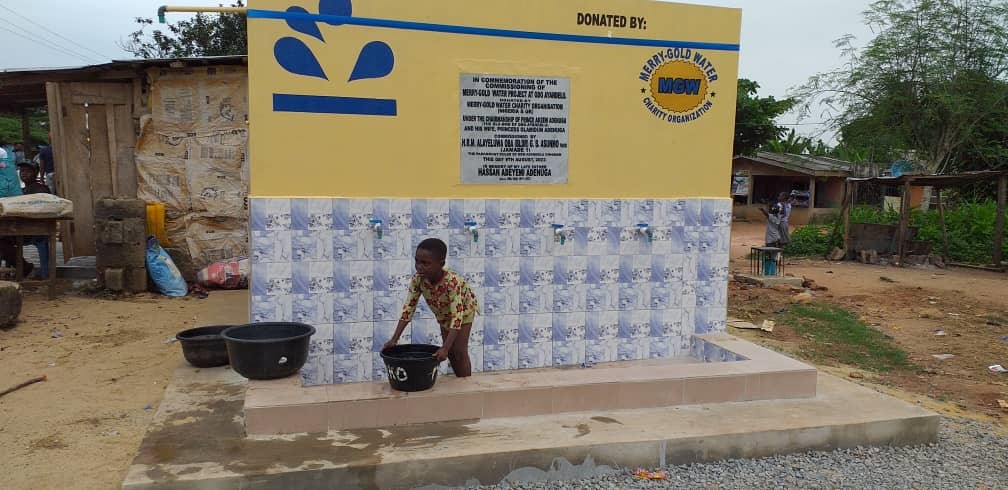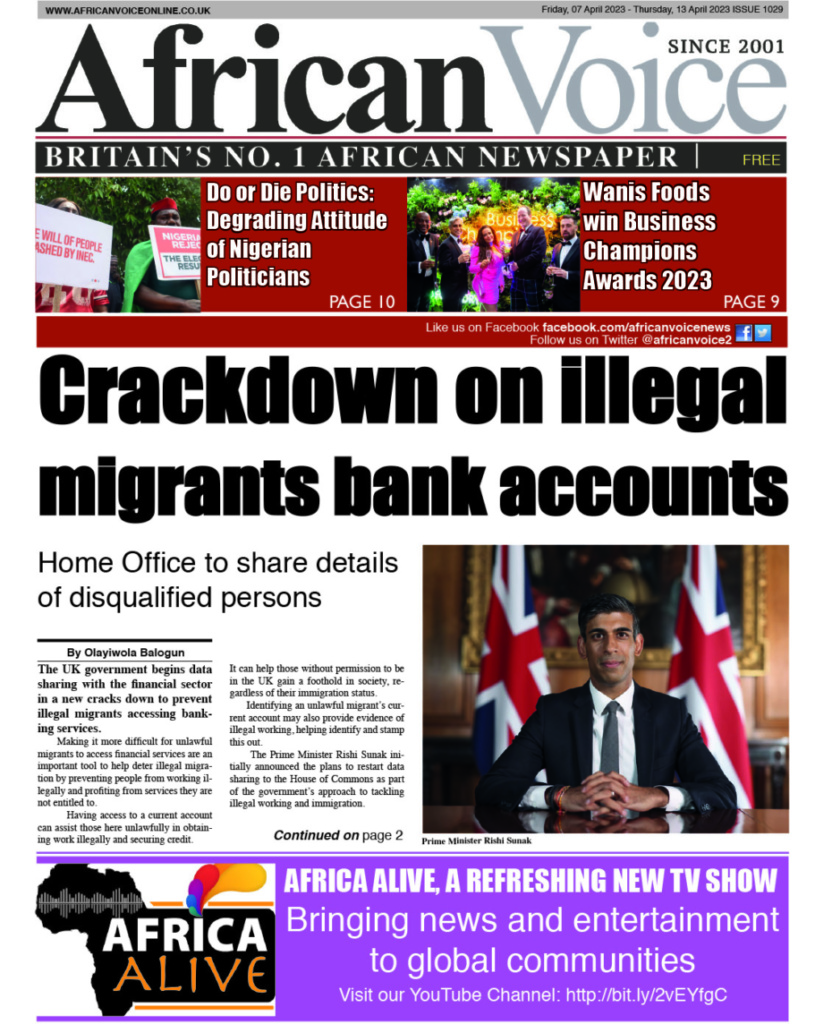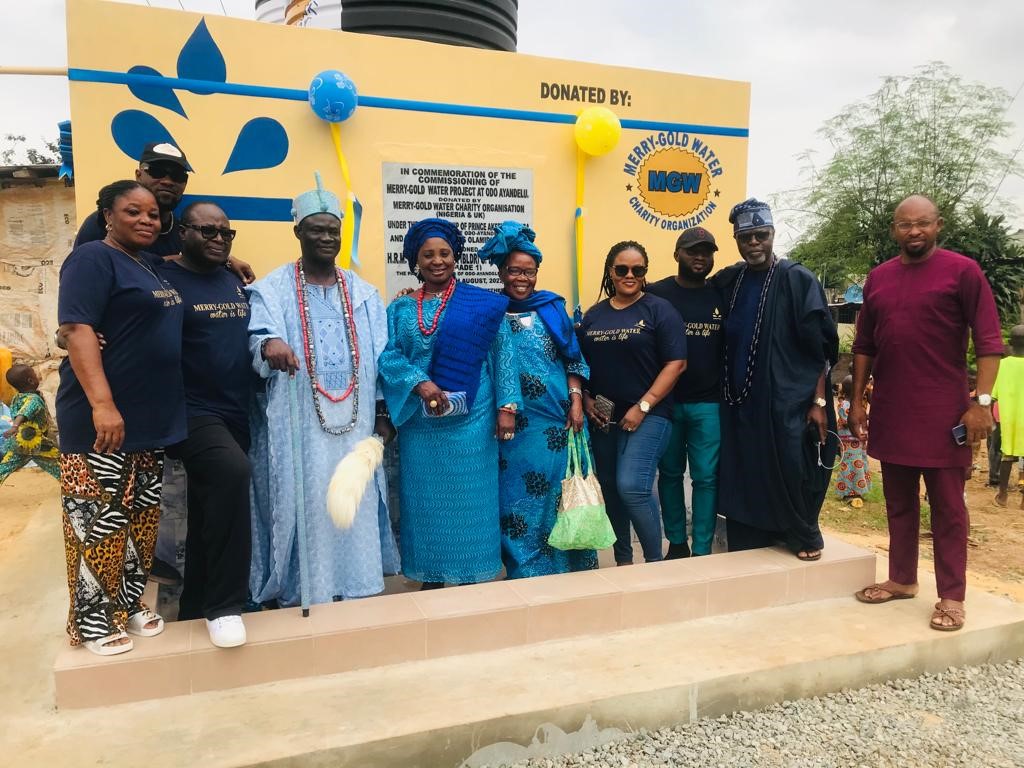
The Story of Merry-Gold Water Charity Organisation
By Prince Akeem Adenuga – It is no longer news that the world is contending with an acute water crisis of immense proportions. In fact, it has been projected that by 2025, a whopping 4 billion people will be living in regions and countries with gross inadequacy in water supply. This is a very scary prospect, considering that many factors are at play in causing and exacerbating the crisis, not the least of worsening climate patterns and their potential to further worsen availability, and even cause contamination of existing water sources.
To state that Nigeria bears her “fair” burden of the world’s water situation does not begin to capture the enormity of the water crisis in the West African country of 200 million people. The statistics are scary and inhumane. 29% of children in Nigeria have no access to safe drinking water, while, on a wider scale, more than 87% of the entire country’s population suffers the same fate. What makes Nigeria’s case peculiar, and therefore very worrisome, is a palpable sense of helplessness on the part of elected governments at national and subnational levels, about how to approach the dire situation. An age-long national water policy has remained a sad metaphor for how successive administrations in the country have launched initiatives with so much noise and pomp, only to watch the same policies die a piecemeal death under their very noses.
Nigeria’s rural communities bear the heaviest brunt of the water scarcity menace. It is estimated that over 70% of households in rural communities have no access to clean water supply. This community depends fully on natural sources such as rivers, lakes, streams, ponds and unsafe wells, which combine to increase their predisposition to a lot of water-borne illnesses such as cholera, dysentery, typhoid fever, legionella and malaria. The 29% of children without access to safe water are found largely in these rural areas where there is an overlap between the risks of water scarcity and poor water service levels. There is no reprieve for the Nigerian child living under these circumstances, and Peter Hawkins, the UNICEF Representative in Nigeria captured the dire situation succinctly. He said that – “When wells dry up, children are the ones missing school to fetch water. When droughts diminish food supplies, children suffer from malnutrition and stunting. When floods hit, children fall ill from waterborne illnesses. And when water is not available in Nigerian communities, children cannot wash their hands to fight off diseases”.
It has been a massive tale of woes from rural areas to urban centers. The worrisome decline in water availability in Nigeria continues unabated, even as the right kind of noises keep getting made in official circles. Access to pipe water services in Nigeria stood at 32% in 1990. By 2015, access plummeted to a dismal 7%. In 1990, access to improved sanitation was 38%, but took a deep dive to 29% in 2015. Not even Lagos, the most populated city in Africa, with the largest economy in the country, is immune to the scourge of acute water shortage. Access to potable water is a huge luxury to Lagos’s 20 million inhabitants. Over the decades in Lagos, many factors have contributed significantly to the acute water supply issues which its teeming inhabitants grapple with on a daily basis. These include – dilapidated water infrastructure, corruption, inconsistent policies, low financial allocation and low government attention to the sector, bad management, etc. These have left the city with a deficit of hundreds of millions of gallons of water every single day.
It was in reaction to this sorry state of affairs in Nigeria’s water supply sector, especially in the most populated state in the country that the idea of Merry-Gold Water Charity was mooted and brought to fruition to help mitigate the perennial water inequity in Nigeria. Merry-Gold Water Charity is a non-profit charity organisation duly registered in Nigeria and in the United Kingdom. It came into being under some of the most “innocuous” circumstances. Merry-Gold’s principal trustee and founder, Prince Akeem Adenuga, after several trips from the UK to Lagos, and having observed, at close quarters, the inexplicable horrors being experienced by locals as they go in search of water daily, made up his mind to help bridge the gap via the provision of safe water to households in some of the most affected communities in Lagos. After setting up offices in Nigeria and London, Merry-Gold Water Charity set out very clearly with its primary mission – to mitigate the water needs in Lagos’s most vulnerable rural communities, singling out Odo-Ayandelu/Agbowa-Ikosi/Epe/Ikorodu local government areas, among others. The intention was to achieve this by providing modern water borehole systems with adequate reservoirs for them, while the target was to channel energy into those communities without access to clean water, liaising with chosen local organisations and individuals. Merry-Gold planned from day one to count on the goodwill of individual donations, grants, corporate sponsorships, and in-kind donations.
In line with fulfilling its self-imposed mandate of providing clean water, improving sanitation, and insulating proper hygiene behaviours among the populations that it serves, Merry-Gold Water Charity, only recently, completed a borehole fetching point facility for the Odo-Ayandelu rural community in Lagos State, Nigeria. Via this lofty project, a community of about 5,000 inhabitants, hitherto dependent on distant unsafe water sources, now has its immediate clean water needs being met. Components of the project include – borehole, treatment plant, aeration tank, solar panels, power generators, etc, and funding came from free will donations from individuals and organisations who keyed into the outstanding benefits therein.
At the moment, Merry-Gold Water Charity has its eyes set squarely on a huge water provision project intended to serve the localities of Agbowa/Ikosi/Epe/Ikorodu areas of Lagos. These are communities that have, for decades, suffered unbearable water scarcity, and have become highly predisposed to a wide spectrum of health risks. The scope of the project will include all the components of the Ayandelu project and multiple layers of fencing, landscaping, fetching points, generator houses, security houses, labour needs, project management and government/local authority permits.
These projects will have a telling impact in alleviating the water crisis that has plagued the target communities for decades, and engender the type of attitudinal change that will birth better health outcomes. Carefully selected stakeholders from different walks of life – from the most basic civil works, to security oversight, will handle the projects. Ultimately, and with concerted alliances with like-minded individuals and organisations, Merry-Gold Water Charity will expand the scope of its interventions beyond the coastal shores of Lagos, as it continues in its commitment to assist in solving Nigeria’s acute water problem, one drop at a time.
For operational efficiency, Merry-Gold Water Charity has two boards of Trustees- in Lagos and in the UK. Its founder/principal trustee is Prince Akeem Adenuga. Akeem holds a Bachelor’s in English Language, and an MA in International Relations from the London Metropolitan University. He has been working on the clean water network in central London for over two decades. He has supervised several water projects, and has vast experience in water leakage solutions and clean water networks. During the London 2012 Olympics, Akeem was part of the experienced Water Operatives (Team Thames), representing Thames Water at Olympic venues in ensuring provision of clean, reliable tap water and sanitation during the games. He is totally driven by his passion for global water equity.
If you would like to support the charity and get involved with future projects please visit our website to donate, alternatively, you can also donate through our JustGiving page on the link below.
Kindly follow us on twitter:@AfricanVoice2
